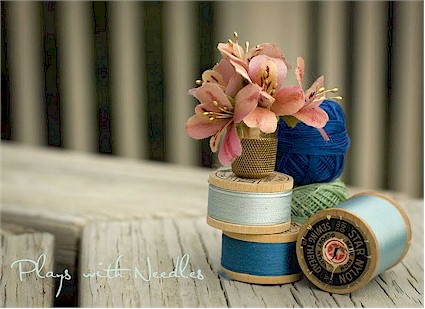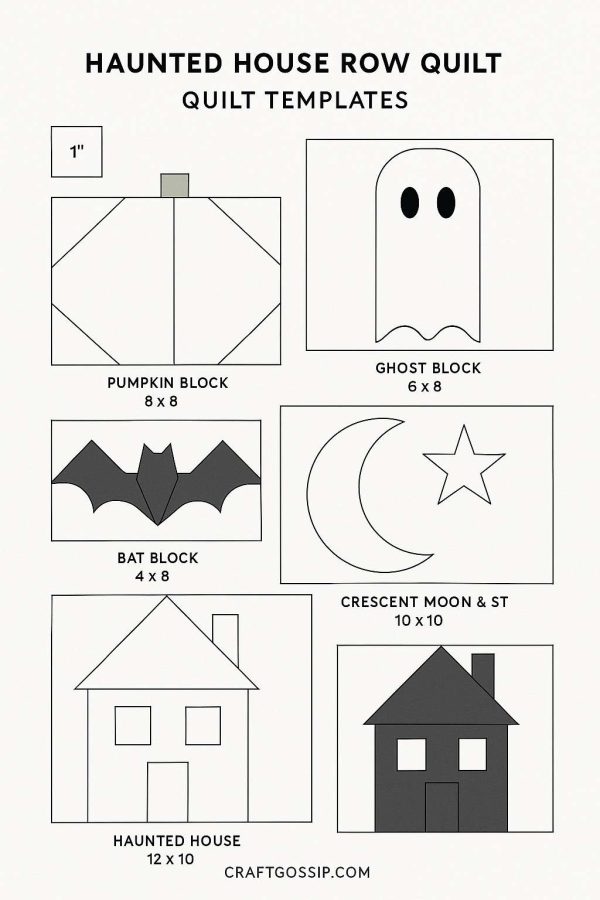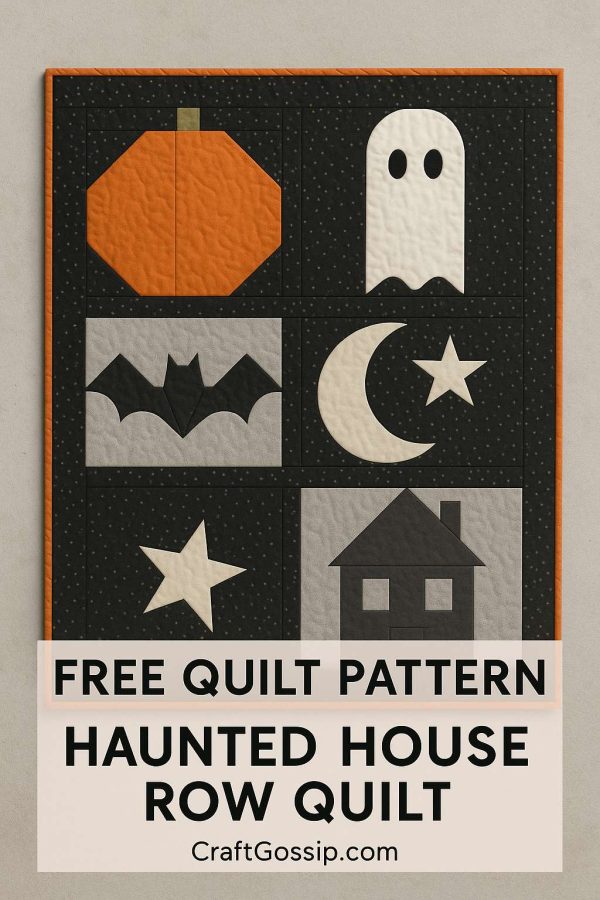 Oh, my goodness. Look what Susan Elliott has done now! She has come up with a way to make these accurate (but tiny) Alstroemeria from ribbon, perfect for adding to a CQ project. And she lets us peek over her shoulder (on her Plays with Needles blog) at the process. Susan is always so generous! See the tute.
Oh, my goodness. Look what Susan Elliott has done now! She has come up with a way to make these accurate (but tiny) Alstroemeria from ribbon, perfect for adding to a CQ project. And she lets us peek over her shoulder (on her Plays with Needles blog) at the process. Susan is always so generous! See the tute.
Have you read?
Free Quilt Pattern: Haunted House Row Quilt
There’s something magical about October evenings—candles glowing, a chill in the air, and just the right excuse to curl up under a spooky-themed quilt. This Haunted House Row Quilt is made up of simple, playful rows—pumpkins, ghosts, bats, moons, and haunted houses—that can be stitched together into a wall hanging, table runner, or even a full throw quilt. Each row is beginner-friendly, so you can piece just one or keep going until you’ve got a quilt worth cackling over.
Quilt Sizes
- Wall Hanging: 30″ × 40″ (3 rows)
- Lap Quilt: 50″ × 60″ (5 rows)
- Twin Quilt: 70″ × 90″ (7 rows, repeat blocks or add more rows)
Materials
- Fat quarters or scraps in orange, black, purple, gray, and green
- 2–3 yards of background fabric (black or low-volume gray/white for contrast)
- Batting and backing fabric (see size chart above)
- Thread in coordinating colors
Row Designs
Row 1: Pumpkin Parade
- Block size: 8″ × 8″ pumpkins with stems
- Technique: Half-square triangles + rectangles
- Layout: 5–6 pumpkins across
Row 2: Ghost Row
- Block size: 6″ × 8″
- Technique: Simple rectangles with curved or zigzag base (appliqué eyes optional)
- Layout: 5–7 ghosts floating across the row
Row 3: Bats in Flight
- Block size: 4″ × 8″
- Technique: Flying geese blocks with added triangles for “wings”
- Layout: A row of bats swooping across the night sky
Row 4: Crescent Moon + Stars
- Block size: 10″ × 10″
- Technique: Drunkard’s Path curves (for the moon) or appliqué, with small star blocks as fillers
- Layout: 3–4 moons per row
Row 5: Haunted Houses
- Block size: 12″ wide × 10″ tall
- Technique: Simple house block with peaked roof and square windows (appliqué windows optional in yellow fabric for a “glowing light” effect)
- Layout: 3–4 houses with background sashing in between
Assembly
- Sew each row separately. Focus on accurate piecing and pressing seams to keep rows straight.
- Square up each row to the same width (add background strips if needed).
- Join rows with sashing (2″ wide strips recommended) to separate the designs and add visual breathing room.
- Add outer borders (optional) for extra size and frame the quilt.
- Layer, quilt, and bind. Straight-line quilting works beautifully on this design, or try free-motion bats and spiderwebs if you’re feeling adventurous.

